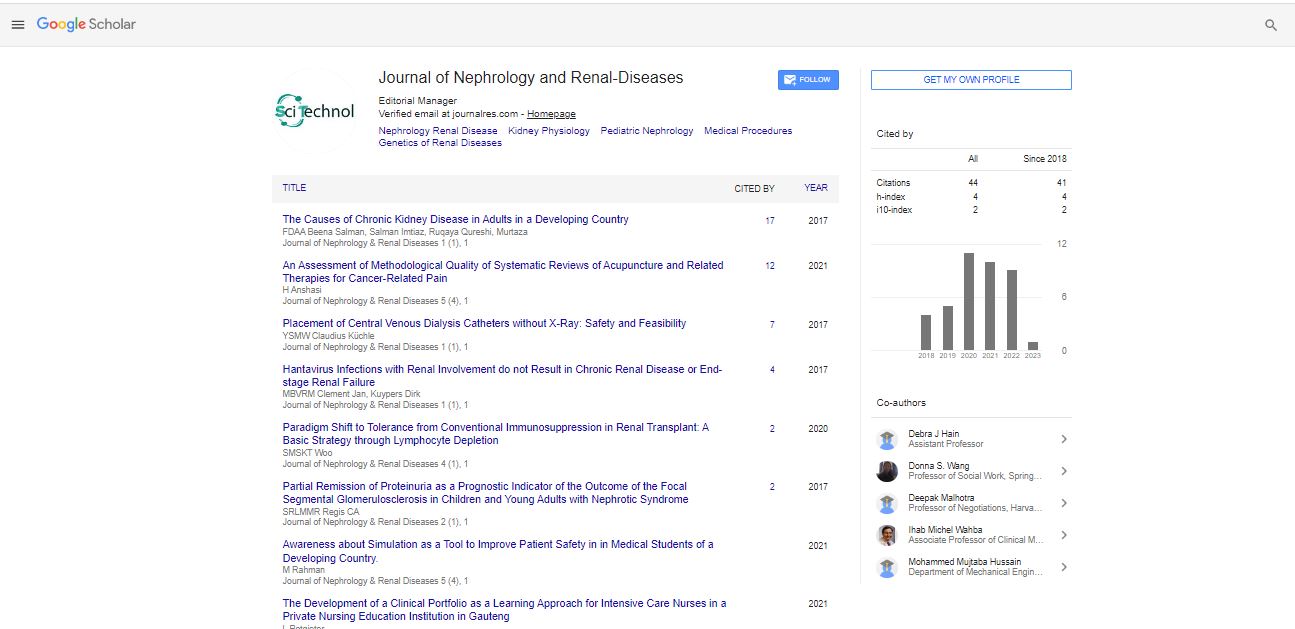Detection of mammaglobin mRNA in the blood of breast cancer Egyptian female patients and its relation to established prognostic parameters
Amal Fawzy
National Cancer Institute, Egypt
: J Nephrol Ren Dis
Abstract
Background: Mammaglobin, also known as secretoglobin family 2A member 2 (SCGB2A2), is a member of the superfamily of secretoglobins. Its expression is highly specific for mammary tissue and has been shown to be overexpressed in breast tumor tissue, indicating that mammaglobin might confer a growth advantage to mammaglobin-expressing tumor cells.
Methods: This study included 46 breast cancer patients, 20 patients diagnosed to have benign breast tumors, and 10 apparently healthy volunteering females as normal controls. Mammaglobin expression was detected in the peripheral blood of both patients and controls using realtime RT- PCR.
Results: Mammaglobin was detected in 26% of peripheral blood of breast cancer patients studied but not in any of the benign or healthy individuals. It showed statistically significant relations with the positivity of HER2neu expression, the presence of distant metastasis and with CEA (p- value =0.005, 0.013, and 0.001 respectively). On the other hand, it was statistically non- significant for age, grade, stage, ER or PR positivity, size of the tumor, and Lymph node involvement. It showed 26% sensitivity and 100% specificity.
Conclusion: Our results suggest that mammaglobin is a specific molecular marker for detection of occult mammary carcinoma cells in the peripheral blood of patients with operable breast cancer. It might be of value as a predictor of subsequent metastasis.
Biography
Amal Fawzy is an assistant professor of clinical pathology, National Cancer Institute, Cairo University, Egypt. Since 2012, one of the biggest oncology centers in the Middle East. she has more than 15 publications in the oncology field especially solid tumors.
E-mail: amalfawzy69@hotmail.com
 Spanish
Spanish  Chinese
Chinese  Russian
Russian  German
German  French
French  Japanese
Japanese  Portuguese
Portuguese  Hindi
Hindi 
